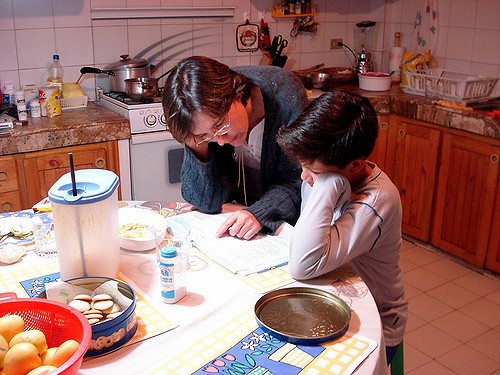Common Situations
- Do you dread getting your children to do all of the things they need to do?
- Are you tired of reminding them to do their chores?
- Do you wonder how you can motivate them to complete their tasks without your help?
The Tip
 If so, today’s tip may be just the answer you are looking for:
If so, today’s tip may be just the answer you are looking for:
Use clear instructions, encouragement and praise to motivate children to do chores.
How it Works
Be Clear
First, make sure your children really understand:
- what they need to do.
- how they need to do it.
- what constitutes a job well done.
Often children want your help because they are unsure about what they should do and how to do it. They need your clear instructions in order to proceed.
At the beginning, you may need to work with your children before they are ready to work on their own. It can take a while, longer than you’d expect or like, before they are ready to work independently. Be patient.
Encourage them
Next, help your children to know and understand what the benefits are to them of becoming more responsible.
The benefits can be internal, such as in the good feelings that come from getting a job done.
For example, a parent might say to a child,
“You can feel proud knowing you were a big help with the chores today.”
Benefits can also be external, such as seeing a clean kitchen sink. If allowance or money is attached to completion of the chore, then that can encourage their cooperation.
In addition, as children become more responsible, they can have more say over when and how they complete a task. This can also motivate kids to act responsibly.
For example, once children learn to cook for themselves and clean up after themselves, they can decide what they eat and when they eat it.
These benefits, both internal and external, can serve as encouragement for your children to complete their tasks. Make sure to point out the good results that will come their way.
Praise them
Finally, praise your children for each step they make towards becoming more responsible. You can do this by breaking down each larger task into smaller pieces.
For example, while a young child may not be able to organize all of his toys, you can praise what he was able to do:
“You did a really great job of putting all of your books on the shelf. Thank you so much. Now, let’s grab the puzzles.”
Closing Thoughts
Be there to support, encourage and praise your children. For some, it can take a long time till they can work on their own. But know that with patience and persistence, they will get there.









